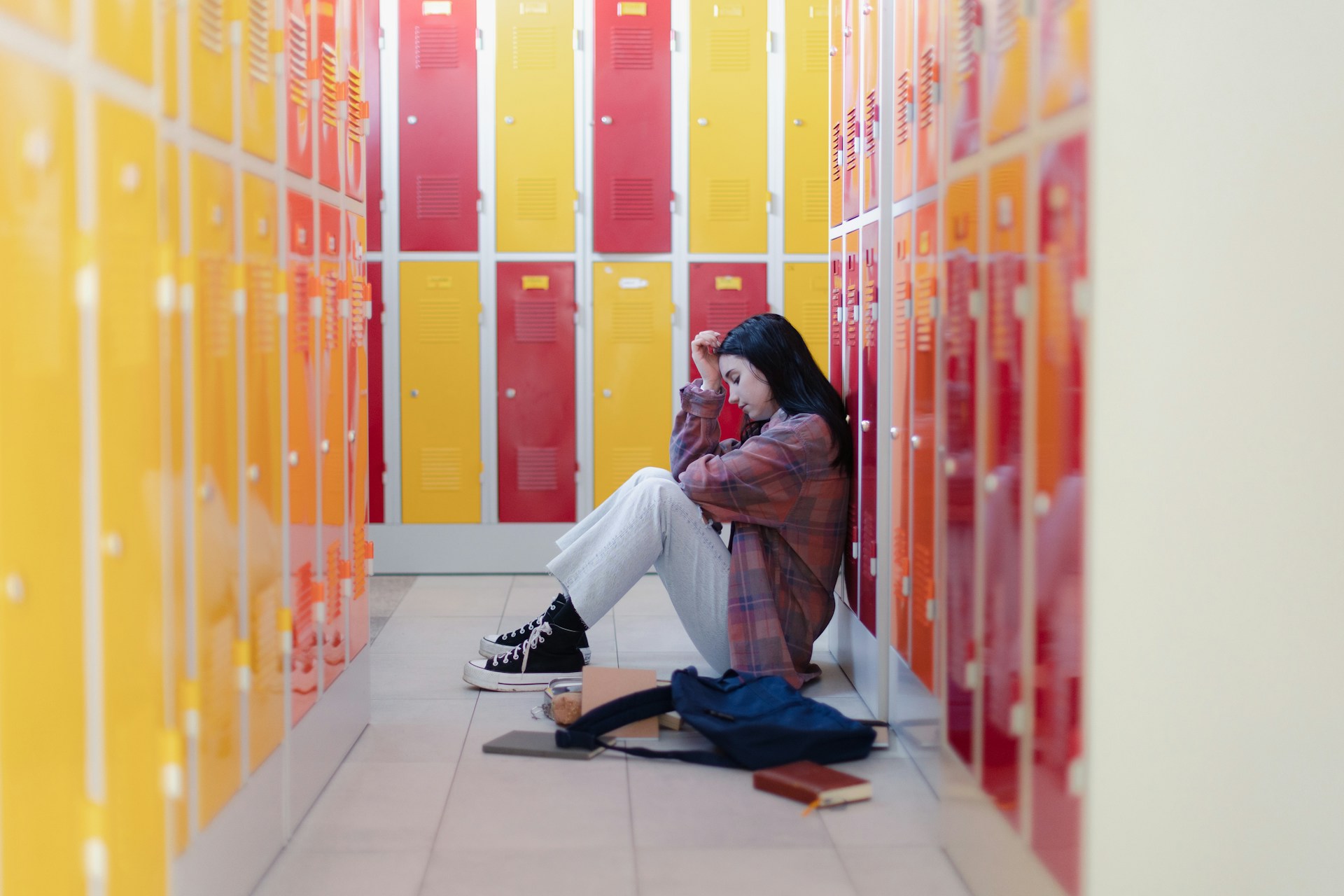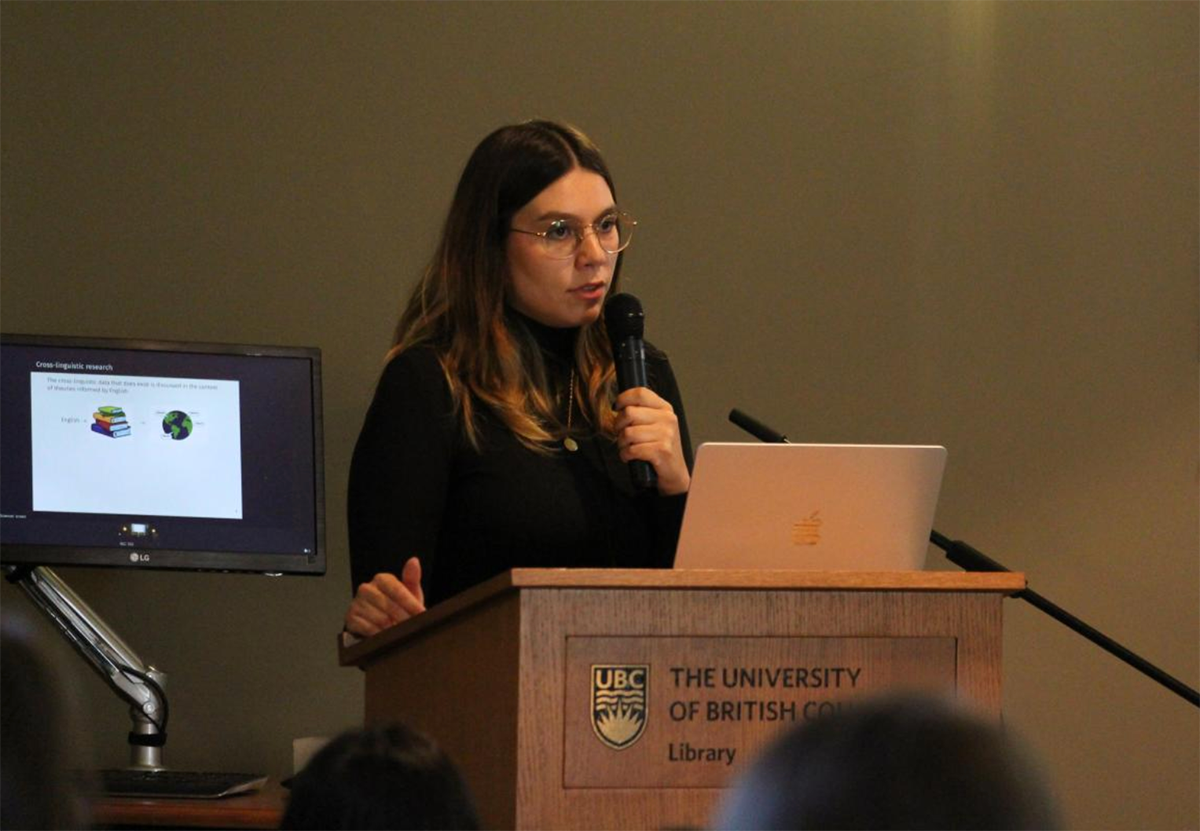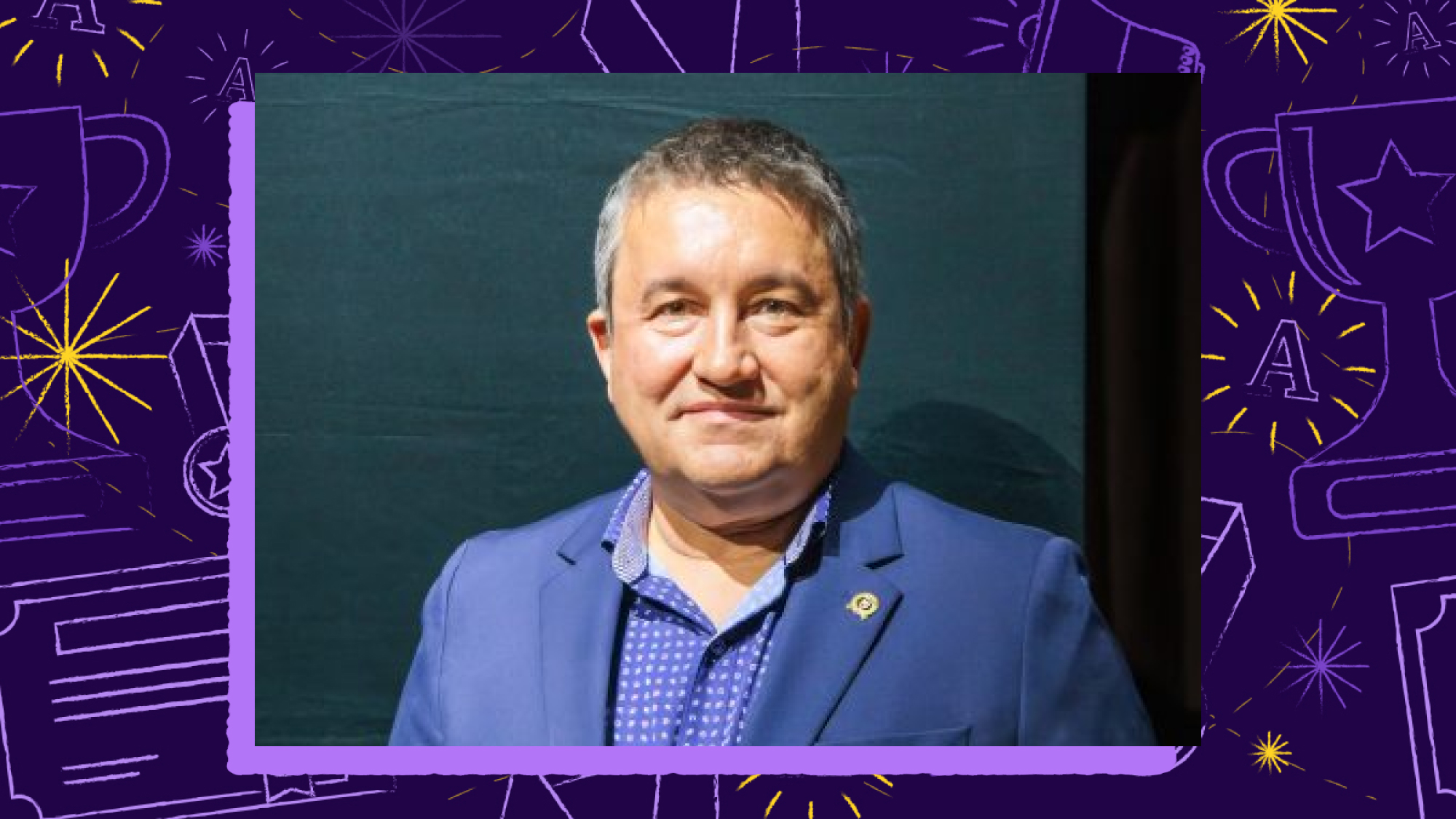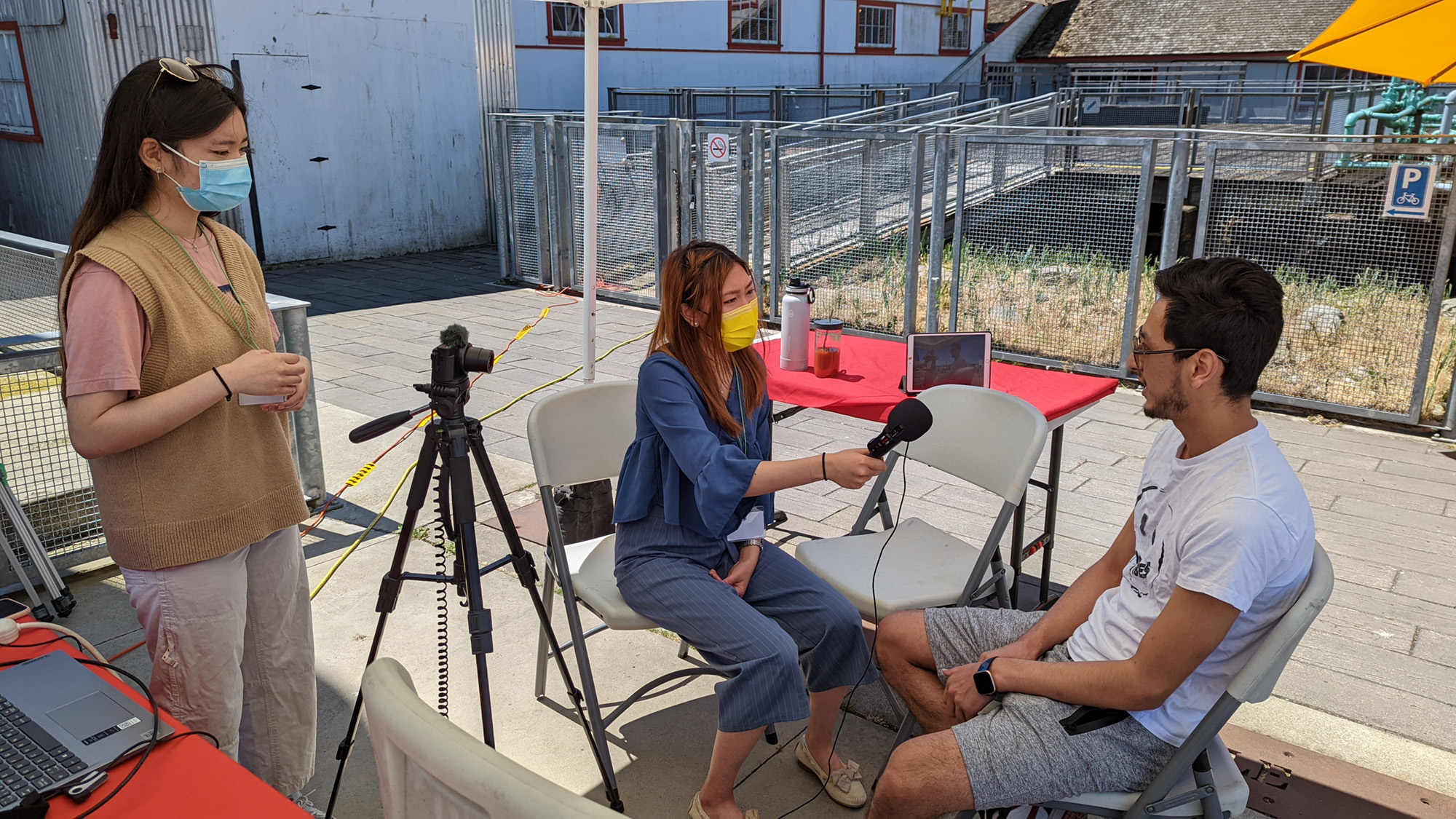

Fish Tales is a collaboration between the Gulf of Georgia Cannery Society (the Cannery) and the UBC Initiative for Student Teaching and Research in Chinese Canadian Studies (INSTRCC), which is now under the UBC Centre for Asian Canadian Research and Engagement. The goal of this project is to increase community-based storytelling, specifically through discussions of fish and seafood. Additionally, to add more diverse voices to the stories of West Coast fishing presented at the Gulf of Georgia Cannery National Historic Site.
Fish Tales seeks to gather stories about seafood as food plays a large part in the customs and cultural practices of every community, and is a way to introduce people from other backgrounds to your own. Since the start of Fish Tales as a class project in 2021, student research assistants have worked with the Cannery to gather and share stories featuring community members through social media, boothing at community festivals, and workshops. Many of these stories are now featured in the Fish Tales exhibition which launched at the Cannery in May 2023.
In 2022, this project received funding from the Community-University Engagement Fund (CUES). Paid directly to the community partners, the funding is designed to support initiatives that benefit communities and advance collaborative research, teaching and learning across the province. One year on, INSTRCC Community Engagement Manager Jennifer Lu and History Professor Dr. Henry Yu, and Collections and Exhibits Manager Heidi Rampfl from the Cannery reflect on how the funding impacted the project, how they worked together, and what they learned from the collaborative process.
This editorial is part of an ongoing series that dives into CUES-funded projects and highlights the achievements of community-university partnerships. Read more from this series:
What did this partnership mean to the community? What was the impact?
Heidi Rampfl: We identified a need to include more diverse voices in our exhibit spaces and provide a connection to the site for people who have not typically been interested (not everyone cares how fish are caught and put in a can!) Students in Dr. Henry Yu’s ACAM390A course came up with the idea of using community-based storytelling as a way to connect with a much wider audience.
“Since the initial conception of Fish Tales, the UBC INSTRCC team and students have provided valuable thoughts, guidance, feedback and time to help the project continue and to grow. Without them, we would not have this project or the feature exhibit that came out of it.”
How did the Community-University Engagement Support Fund impact the research?
Jennifer Lu: Funding from the CUES grant has been instrumental in the success of the ongoing collaboration between UBC INSTRCC and the Cannery. For the past two years, we have been able to pay student research assistants to co-create and co-develop this project alongside the Cannery staff team. We have also been able to purchase film and audio equipment to capture high quality recordings and support marketing for the Fish Tales exhibition.
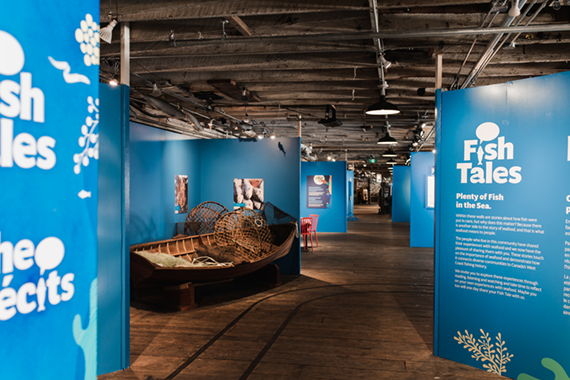

What strategies or actions did you implement to ensure that the community partners’ voices were heard and valued?
Jennifer Lu: We have regular check-in meetings with the Cannery, where everyone has a space to share their thoughts and ideas. In the day-to-day, we encourage our student team to include everyone involved in email correspondences so that everyone is in the loop and that decisions can be made collaboratively.
What do you believe makes for a successful partnership between a community and University when conducting research? What are the biggest hurdles?
Heidi Rampfl: Being clear about and understanding the goals of each organization, as well as respecting the time and ideas contributed by all is always important in a partnership. Funding always helps, too! But most importantly, a great deal of the success has come from the incredibly talented, creative and hard working students that UBC INSTRCC has been able to bring into the project. The solid guidance and support provided by Jennifer Lu and Dr. Henry Yu has also been invaluable.
In terms of hurdles, the COVID-19 pandemic is the easy thing to point to as a challenge, especially when attempting to connect with the community through ever-changing restrictions. However, thanks to the strong partnership between our teams we were able to overcome this obstacle.
What’s next for the project?
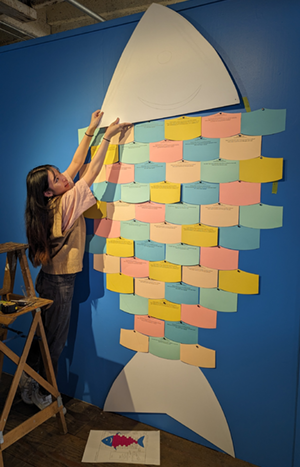

Jennifer Lu: With the opening of the Fish Tales exhibition, we are excited to work together to have student research assistants work in the space to further engage visitors to the Cannery in conversations around fish and seafood. We also hope to work with teachers to engage school-aged children and youth in the City of Richmond through facilitating story-gathering activities.
Heidi Rampfl: We’ve seen very positive reactions to the exhibit and we are hoping to continue building on these positive experiences for our visitors by adding new interactive elements to the space, like our story card wall that allows visitors to share their own stories.
“It has been very gratifying to see Fish Tales evolve from a class project in 2021, to now an exhibit at the Cannery. Our team at UBC values the ethic of student-centered, student-led teaching and learning, and this project is a great example of how something small can into into something impactful for the community.”
View this post on Instagram
